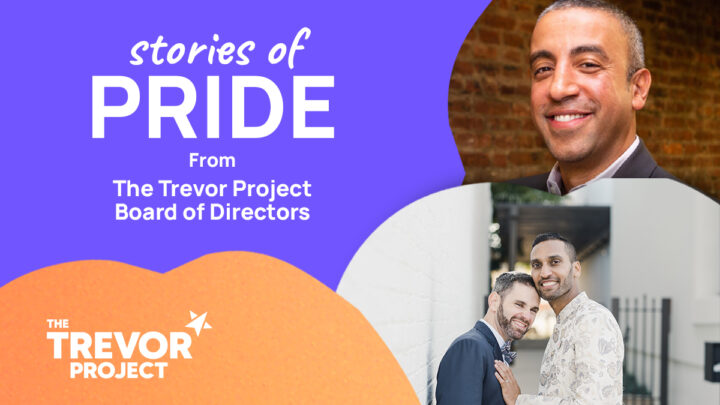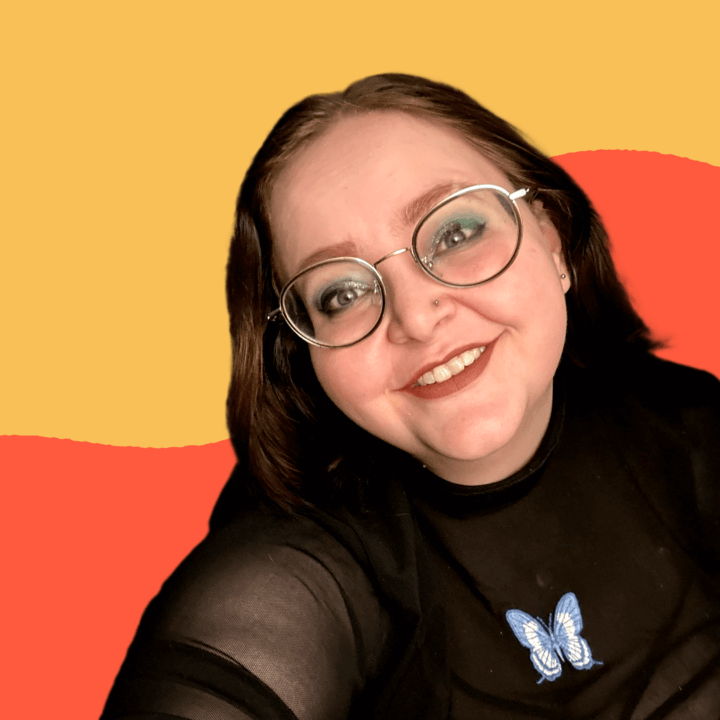Karen Kennedy is a beloved member of the Trevor community who has dedicated her career to improving the mental health of BIPOC communities. Below she shares her story of navigating mental health stigma amongst the Black community and her own family.
What is it like talking about mental health with your friends and family?
There has been a remarkable shift in the acceptance and openness surrounding mental health discussions within my circle of friends and family. This positive change can be attributed to the growing recognition and understanding of mental well-being within society, including the Black community. People are now more inclined to engage in conversations about their mental health, seek support, and provide guidance to one another.
However, reflecting on the past, the landscape was vastly different. Mental health discussions were rarely initiated within my family. In fact, any instances of mental illness or health issues were often kept hidden, viewed as a source of shame or personal failure. As a result, when my son, who is now an adult and identifies as queer, was diagnosed with ADHD at the age of eight, I made a conscious decision not to share his diagnosis with friends, family, or even his teachers. My intention was not rooted in shame, embarrassment, or a sense of personal inadequacy as a mother. Rather, I aimed to protect my son from feeling ashamed of his identity and to shield him from potential labeling or victimization. My priority was to provide him with an environment free from negative influences, allowing him to grow and thrive without unnecessary judgment.
While the past silence may have stemmed from concerns about societal perceptions, today I am encouraged by the increased willingness of individuals to engage in open and supportive discussions about mental health. This shift provides a more compassionate and understanding atmosphere, fostering a sense of acceptance and empowerment for those facing mental health challenges within the Black community.
How do you feel upbringing, culture, or community affects mental health?
I believe upbringing, culture, and community have significant impacts on mental health, especially in the Black community. How someone is raised, including parenting styles, family dynamics, and values, can shape their mental well-being. I have a strong sense that experiences of trauma and the availability of emotional support during important stages of life can influence emotional capacity and coping mechanisms in later years.
It’s my view that cultural norms emphasizing strength and self-reliance may discourage some people within the Black community from seeking support or discussing mental health challenges openly. Also, while communities can provide social support, they can also contribute to stigmas and barriers due to limited awareness and mistrust of medical systems.
Tell a story about how you’ve had to de-stigmatize mental health with your friends, family, or community.
My son was just like any other eight-year-old, full of boundless energy, an insatiable curiosity, and a deep love for his Optimus Prime Transformer action figure. However, I couldn’t ignore the fact that he seemed unusually restless and would frequently have emotional outbursts over the smallest things. To make matters worse, my family members were quick to pass judgment, criticizing his behavior and suggesting that he lacked discipline or needed to be disciplined physically. But I firmly believed that corporal punishment was not the answer. In my heart, I knew he was just an adventurous young boy who needed a loving, nurturing environment, firm guidance, and structure to grow and mature.
As time went on, his behavior began to affect his school life. Despite his intelligence, his grades started to decline, and he struggled to interact with his classmates and communicate effectively with his teachers. His hyperactivity occasionally disrupted the classroom, and I received letters from the school regarding his behavior. I looked forward to meeting with his teachers, hoping to gain insights and receive helpful tools to support his success. However, my optimism quickly turned to disappointment. Instead of receiving the guidance, support, and collaboration I anticipated, I encountered complaints and microaggressions. They viewed me as just another young Black mother, lazily neglecting to discipline or set boundaries for my child, and offered no assistance or solutions.
What happened next was a shocking blow. Without any consultation, warning, permission, or even my knowledge, my son was placed in the Special Education program. The decision completely disregarded my role as a mother and the respect I deserved. No one bothered to engage me in a conversation about mental health or learning disabilities. It was clear to me that they had followed a familiar pattern — assigning young Black boys to a secluded space, where they could be overlooked and left to fail, reinforcing negative stereotypes. This was my first encounter with how the system and our community often fail young Black boys when it comes to addressing mental health challenges. It was a heartbreaking realization and a moment of deep disappointment.
Can you share your experience or the challenges you’ve faced in accessing mental health care?
After the traumatic experience my son had with being placed in the Special Education program when he was eight years old without my authorization, I made the difficult decision to remove him from the public school system. Despite the financial strain it caused, I enrolled him in a private Catholic school, hoping that the smaller class sizes and personalized attention would foster his growth and well-being. It was at this point that I finally received guidance on how to support my son’s mental health. The school counselor provided me with a short list of social workers and psychiatrists, but disappointingly, none specialized in pediatric care or had experience working with children of color. I was disheartened to realize that the only psychiatrist willing to accept my son as a patient was a forensic psychiatrist. The thought of my eight-year-old Black son receiving mental health care from a forensic psychiatrist weighed heavily on me. While this white male doctor was kind and made efforts to connect with my son on a child’s level, I couldn’t shake the guilt knowing that his expertise in forensic psychiatry and his race may limit his understanding of my son’s trauma and cultural nuances, hindering the effectiveness of the therapy provided. The limited options available left me longing for mental health professionals who could better relate to my son’s experiences and provide more culturally sensitive and appropriate care.
What role do you feel stigma still plays in BIPOC communities around mental health?
I believe stigma continues to play a significant role in BIPOC communities regarding mental health. Despite some improvements, mental health stigma persists and can hinder people from seeking the support and care they need. To combat mental health stigma in BIPOC communities, we need a comprehensive approach. This includes providing culturally sensitive services, educating and advocating for awareness, promoting diversity in mental health professions, and creating safe spaces for open conversations. By fighting against stigma, we can foster a supportive and fair environment for mental health in BIPOC communities.
The Trevor Project is the leading suicide prevention and mental health organization for lesbian, gay, bisexual, transgender, queer & questioning (LGBTQ) young people. If you or someone you know is feeling hopeless or suicidal, our trained crisis counselors are available 24/7 at 1-866-488-7386 via chat www.TheTrevorProject.org/Get-Help, or by texting START to 678-678.


